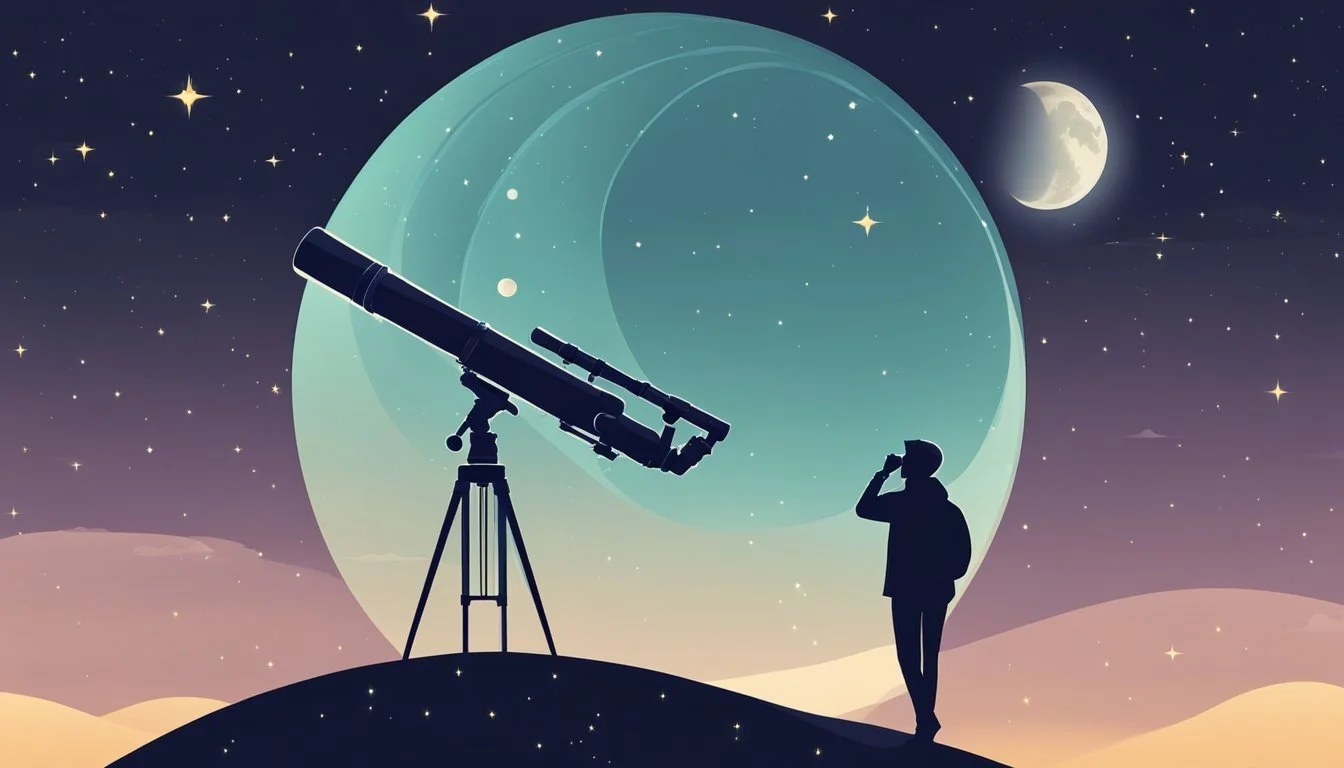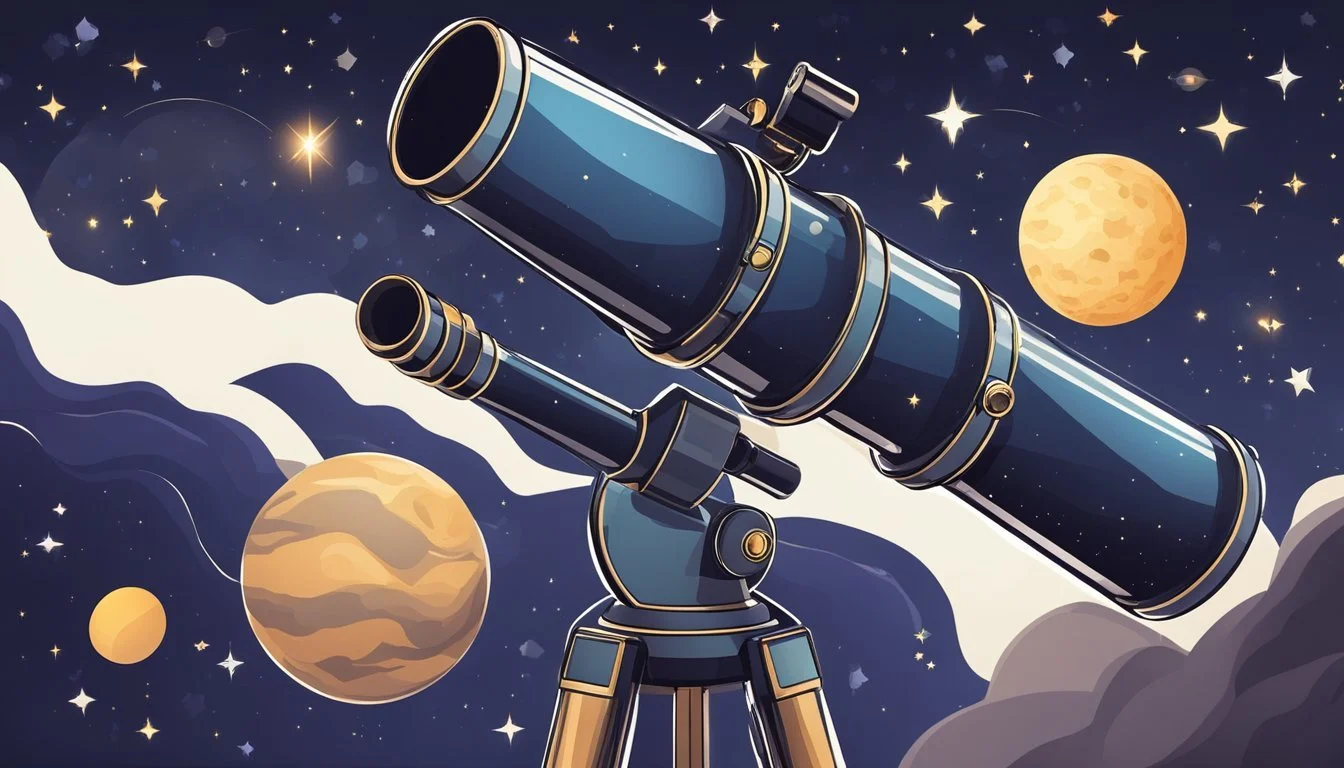6 Documentaries Examining the Life and Legacy of Galileo Galilei
Unveiling the Father of Modern Science
Galileo Galilei stands as a towering figure in the history of science, whose groundbreaking discoveries and unwavering pursuit of knowledge revolutionized our understanding of the cosmos. His life and legacy continue to captivate audiences, inspiring numerous documentaries that explore his scientific achievements and the challenges he faced.
These documentaries offer viewers a chance to delve into Galileo's world, examining his contributions to astronomy, physics, and the scientific method. By presenting Galileo's story through various lenses, these films provide valuable insights into the man behind the discoveries and the lasting impact of his work on modern science. From his observations of the moons of Jupiter to his defense of heliocentrism, Galileo's journey remains a testament to the power of curiosity and critical thinking.
1) Galileo's Battle for the Heavens
This PBS NOVA documentary explores the life of Galileo Galilei, the 17th-century scientist who revolutionized our understanding of the cosmos. It delves into his groundbreaking use of the telescope and the profound discoveries that followed.
The film dramatizes Galileo's struggle to convince Roman Catholic Church authorities of his findings. It portrays his conflict with religious leaders who viewed his work as a threat to established doctrine.
Galileo's observations of Jupiter's moons and Venus' phases provided crucial evidence for the Copernican model of the solar system. The documentary examines how these discoveries challenged the prevailing geocentric worldview.
The program also covers Galileo's trial by the Inquisition and his eventual house arrest. It illustrates the tension between scientific inquiry and religious authority during this pivotal period in history.
Through interviews with scientists and historians, the documentary provides context for Galileo's contributions to astronomy and physics. It highlights his role as a key figure in the scientific revolution.
2) Galileo's Moon
"Galileo's Moon" is a captivating documentary that delves into a remarkable discovery related to the renowned scientist's work. The film focuses on an alleged proof copy of Galileo's groundbreaking book "Sidereus Nuncius" (Starry Messenger).
This documentary brings together experts who examine the authenticity of this potentially significant historical artifact. They scrutinize various aspects of the book, including the Cesi stamp, Galileo's signature, and peculiarities within the text.
The investigation uncovers intriguing details about the book's provenance and raises questions about its authenticity. Viewers are taken on a journey through the scientific and historical analysis process.
"Galileo's Moon" offers a fascinating look at how modern technology and expertise can be applied to verify historical documents. It highlights the ongoing relevance of Galileo's work and the excitement surrounding new discoveries related to his legacy.
This documentary provides valuable insights into Galileo's astronomical observations and their impact on scientific understanding. It serves as an engaging exploration of both scientific history and modern investigative techniques.
3) Galileo: Fighting in the Scientific Revolution
Galileo Galilei played a pivotal role in the Scientific Revolution of the 16th and 17th centuries. His innovative approach to science, based on observation and experimentation, challenged long-held beliefs and transformed our understanding of the natural world.
The documentary "Galileo: Fighting in the Dawn of Modern Science" explores Galileo's life and scientific works. It portrays his journey through intense social, academic, and political battles as he championed new ideas.
Galileo's contributions spanned mathematics, physics, and astronomy. He made groundbreaking discoveries using telescopes he designed, including the moons of Jupiter and the phases of Venus. These observations provided crucial evidence supporting the heliocentric model of the solar system.
His work faced strong opposition from the Catholic Church, which adhered to the geocentric view of the universe. Despite this, Galileo persisted in his pursuit of scientific truth, even when it put him at odds with religious authorities.
Galileo's dedication to the scientific method and empirical evidence laid the foundation for modern scientific inquiry. His legacy continues to inspire scientists and thinkers to question established ideas and seek new knowledge through observation and experimentation.
4) Galileo Galilei: The Father of Modern Science
Galileo Galilei revolutionized scientific thought and methodology in the 16th and 17th centuries. His innovative approach to experimentation and observation laid the groundwork for modern scientific practices.
Galileo made significant contributions to astronomy, physics, and mathematics. He improved the telescope, allowing for more detailed observations of celestial bodies. This led to groundbreaking discoveries about the moon, Jupiter's moons, and the phases of Venus.
In physics, Galileo's work on motion and falling bodies challenged prevailing Aristotelian concepts. His experiments with inclined planes and pendulums paved the way for a more accurate understanding of mechanics.
Galileo's insistence on the heliocentric model of the solar system, supporting Copernicus' theory, put him at odds with the Catholic Church. Despite facing persecution, he continued to advocate for evidence-based scientific inquiry.
His writings, including "Dialogue Concerning the Two Chief World Systems," popularized scientific ideas and promoted critical thinking. Galileo's legacy extends beyond his discoveries, as he championed the scientific method and the importance of empirical evidence.
5) The Great Genius: Galileo Galilei
Galileo Galilei stands as a towering figure in the history of science. Born in Pisa in 1564, he demonstrated exceptional aptitude from a young age. His household encouraged curiosity and critical thinking, laying the foundation for his future achievements.
Galileo's contributions span multiple scientific disciplines. He made groundbreaking observations in astronomy using his improved telescope. His support for the heliocentric model of the solar system challenged prevailing beliefs of his time.
In physics, Galileo conducted experiments on motion and gravity that paved the way for Newton's laws. He advocated for the scientific method, emphasizing the importance of empirical evidence and mathematical analysis.
Galileo's work extended beyond pure science. He was a skilled inventor, creating tools like the geometric and military compass. His writings, often in Italian rather than Latin, helped popularize scientific ideas among a broader audience.
Despite facing opposition from religious authorities, Galileo remained committed to his scientific principles. His unwavering dedication to truth and empirical observation cemented his place as a pioneer of modern science.
6) Galileo's Universe
This documentary explores Galileo's groundbreaking observations of the cosmos. It highlights his use of the telescope to study celestial bodies, revolutionizing our understanding of the universe.
The film details Galileo's discovery of Jupiter's moons, which provided evidence for the Copernican model of the solar system. It also covers his observations of the phases of Venus, further supporting the heliocentric theory.
Galileo's studies of the Moon's surface are examined, revealing how he challenged the prevailing belief in celestial perfection. The documentary showcases his sketches of lunar craters and mountains, demonstrating the Moon's imperfect nature.
The film discusses Galileo's observations of sunspots, which contradicted the idea of an unchanging Sun. It explains how these findings contributed to a new understanding of solar phenomena.
Galileo's work on the Milky Way is featured, showing how he resolved it into individual stars. This revelation expanded humanity's concept of the universe's vastness.
The documentary concludes by exploring the impact of Galileo's discoveries on scientific thought and religious doctrine. It illustrates how his observations laid the foundation for modern astronomy and physics.
Galileo's Early Life and Education
Galileo Galilei's formative years in 16th century Italy laid the foundation for his groundbreaking scientific career. His family background and early academic pursuits shaped his intellectual development and curiosity about the natural world.
Family Background
Galileo was born on February 15, 1564, in Pisa, Italy. His father, Vincenzo Galilei, was a renowned musician and music theorist. The elder Galilei's work in musical harmonies likely influenced Galileo's later interest in mathematics and physics.
Galileo was the oldest of six children in a middle-class family. His mother, Giulia Ammannati, came from a noble background but had limited financial means. The family moved to Florence when Galileo was young, seeking better economic opportunities.
Academic Pursuits and Influences
At age 11, Galileo began his formal education at the Vallombrosa monastery. He initially studied to become a monk but left after four years due to health issues and his father's wishes.
In 1581, Galileo enrolled at the University of Pisa to study medicine at his father's urging. However, his true passion lay in mathematics and natural philosophy. He was particularly influenced by the works of Euclid and Archimedes.
During his university years, Galileo made his first significant scientific observation. He noticed that a chandelier's swing remained consistent regardless of its arc, leading to his study of pendulums.
Galileo left the university in 1585 without completing his degree. He then spent several years giving private mathematics lessons before securing a teaching position at the University of Pisa in 1589.
Scientific Contributions
Galileo Galilei made groundbreaking discoveries in astronomy and physics that revolutionized our understanding of the natural world. His work laid the foundation for modern scientific methods and challenged prevailing beliefs of his time.
Astronomical Discoveries
Galileo's astronomical observations transformed our view of the cosmos. Using his improved telescope, he discovered the four largest moons of Jupiter, now known as the Galilean moons. This finding provided crucial evidence for the Copernican heliocentric model.
He observed the phases of Venus, which contradicted the geocentric Ptolemaic system. Galileo also studied sunspots, the Moon's surface features, and the Milky Way's composition.
His observations of Saturn's rings, though misinterpreted at the time, paved the way for future discoveries. These findings were published in his work "Sidereus Nuncius" (The Starry Messenger) in 1610.
Innovations in Physics
Galileo's contributions to physics were equally revolutionary. He formulated the law of free fall, demonstrating that all objects accelerate at the same rate regardless of mass.
His experiments with inclined planes led to the concept of inertia, later formalized in Newton's first law of motion. Galileo developed the mathematical description of projectile motion, separating it into horizontal and vertical components.
He invented the thermoscope, a precursor to the thermometer, and improved the design of the compound microscope. Galileo's pendulum studies laid the groundwork for the development of mechanical clocks.
His emphasis on mathematical descriptions and experimental verification of theories marked a significant shift in scientific methodology.
Impact on Modern Science
Galileo Galilei's revolutionary work laid the foundation for scientific progress that continues to shape our world today. His methodologies and discoveries paved the way for advancements across multiple fields of study.
Advancements in Telescope Technology
Galileo's improvements to the telescope opened up new frontiers in astronomy. He increased the magnification power from 3x to 30x, allowing for unprecedented observations of celestial bodies. This innovation led to the discovery of Jupiter's moons and the phases of Venus, challenging existing models of the universe.
Modern telescopes, both on Earth and in space, owe much to Galileo's pioneering work. The Hubble Space Telescope and James Webb Space Telescope are direct descendants of his early designs, enabling scientists to peer deeper into the cosmos than ever before.
Influence on the Scientific Method
Galileo's approach to scientific inquiry revolutionized how research is conducted. He emphasized the importance of empirical evidence and mathematical analysis over reliance on ancient texts or philosophical arguments.
His insistence on testing hypotheses through careful experimentation became a cornerstone of the scientific method. This approach has been adopted across all scientific disciplines, from physics to biology.
Galileo's work on motion and mechanics laid the groundwork for Newton's laws of motion. His contributions to mathematics, including work on infinity and continuity, influenced the development of calculus.




